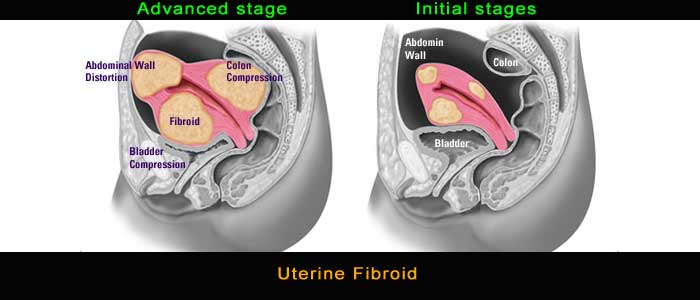
In the United States, where two-thirds of the population is either overweight or obese, weight-loss surgeries have increased in recent years, according to the Centers for Disease Control and Prevention. While the surgeries are successful at helping people lose weight and reduce their risk for hypertension, diabetes and other chronic illnesses -- patients have to carefully weigh the benefits of the procedure with the serious risks, side effects and even death in some cases.
Standing near the coffin of one of her closest friends, Patty Hill made a promise that would forever change her life.
Patty Hill says losing 140 pounds through weight loss surgery still took discipline, planning and hard work.
Her friend, Gail, had died from a blood clot just a week after undergoing gastric bypass surgery to make her stomach smaller. Hill was scheduled to have the same surgery and believed it was the only way to end her lifelong struggle with obesity.
Tipping the scales at 280 pounds and standing 5 feet 5 inches tall, Hill says she was depressed, moody and always defensive. The 47-year-old mother from Weymouth, Massachusetts, was morbidly obese, and after her friend's death, she was beginning to lose hope.
"That was the end of the gastric bypass for me," remembers Hill. "At her wake, I promised everyone that I would not go ahead with surgery."
Hill wore a 26/28 dress size and had heart problems. Now, not only was she afraid that she couldn't lose the weight, but she was even more afraid she'd die, leaving her daughters, ages 23 and 14, to grow up without her.
Just when she'd lost all hope, her cardiologist asked if she had ever considered Lap-Banding -- a less-invasive form of weight-loss surgery.
Hill immediately started researching the procedure, in which an adjustable band is placed around the upper part of the stomach to restrict the amount of food the stomach will hold. According to MayoClinic.com, the band creates a small pouch opening to the stomach. The amount of food your stomach will hold is controlled by injecting or removing fluid from the band. Even though gastric banding restricts the amount of food, it does not reduce the absorption of calories or nutrients.
In the United States, where two-thirds of the population is either overweight or obese, weight-loss surgeries have increased in recent years, according to the Centers for Disease Control and Prevention. While the surgeries are successful at helping people lose weight and reduce their risk for hypertension, diabetes and other chronic illnesses -- patients have to carefully weigh the benefits of the procedure with the serious risks, side effects and even death in some cases.
Some of the more common side effects of weight-loss surgery can be difficulty digesting starchy foods and protein, which can lead to other physical conditions including hair loss, fatigue, swelling and muscle weakness.
Once she did her homework on gastric banding, Hill says she knew the procedure was for her. She sought treatment at Tufts-New England Medical Center in Boston, Massachusetts. The program required six weeks of pre-operation behavior-modification classes and monthly support meetings.
On February 28, 2005, Hill's Lap-Band surgery was a success.
She immediately started losing weight, dropping 20 pounds the first month, and continued to lose 10 to 15 pounds a month. Six months later, at the end of August, she had dropped 75 pounds.
As the second anniversary -- or "Bandiversary" -- of her surgery approached, Hill had lost 130 pounds and reached her original target weight of 150 pounds..
That's when she began exercising and keeping track of her daily food intake via the Web site FitDay.com.
"You don't realize how many calories you're taking in until you start keeping track," said Hill.
Ultimately, Hill surpassed her original weight loss goal and lost another 10 pounds. She currently weighs 140 pounds and, after dropping 10 dress sizes, now fits perfectly into a size 8, she says.
Despite the rapid weight loss, surgery wasn't an easy way out. Hill says she still has to plan her meals and eat properly, and one of the biggest downsides is that she has difficulty digesting some starchy foods.
"I can't eat bread, potatoes, rice," says Hill. "I have to cut up everything into pencil eraser-size [pieces] and chew, chew, chew."
Still, the surgery has restored her life, Hill says.
One of the biggest perks of losing 140 pounds is traveling with greater ease. She doesn't have to ask for a seat belt extender and no longer feels like she's spilling into her neighbor's seat.
"I went to Cancun last July, and I was able to go horseback riding without hurting the horse," jokes Hill.
She's also discovered something else.
"I'm actually petite," Hill says excitedly. "I can buy stylish clothes. Before surgery, I just bought clothes that fit me. Now I can buy clothes that look good on me."
When she's shopping, Hill says, people make eye contact with her more often and wait on her right away. When she was obese, Hill says, she felt almost invisible, and even though she didn't want to believe it, people ignored her.
"Men actually flirt with me; it cracks me up, but freaks out my daughters," says Hill. "I have a boyfriend with a Harley. I love riding on the back of [his bike]."
The weight loss has also inspired Hill to take acting classes, and she's even appeared as an extra in several movies. Earlier this year, she attended her first Boston Red Sox game and was elated to discover that she could fit into the seats.
Best of all, Hill says, she has a lot more energy and self-confidence, and she's healthier. She says the surgery is the best thing she's done for herself.
"I am so happy with the way I look and feel," says Hill, "I never want to go back to the way I looked before. It sounds very superficial, but it's the truth."
.......Read the original CNN report here











